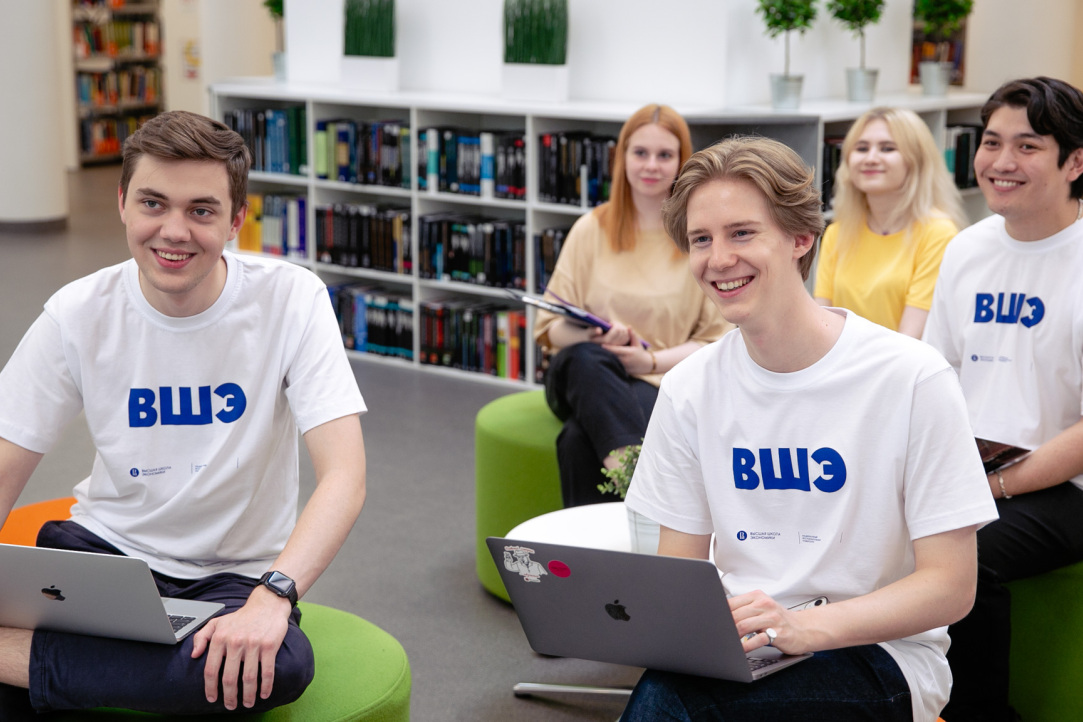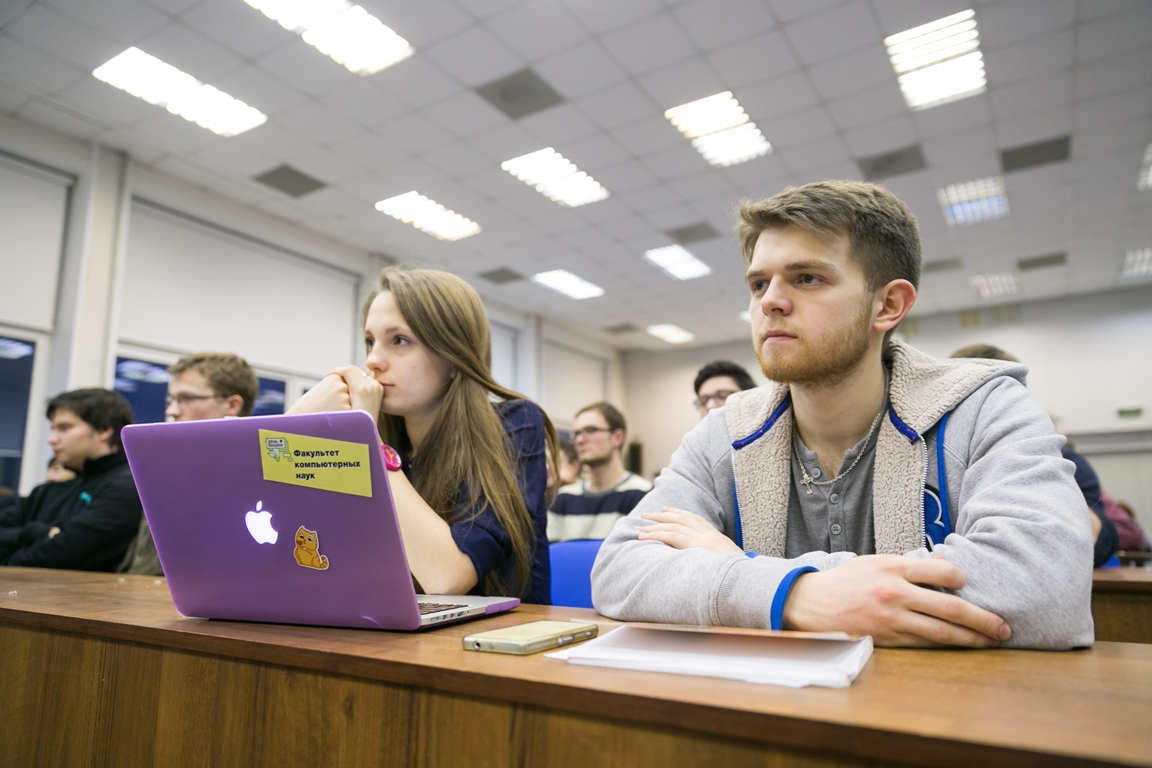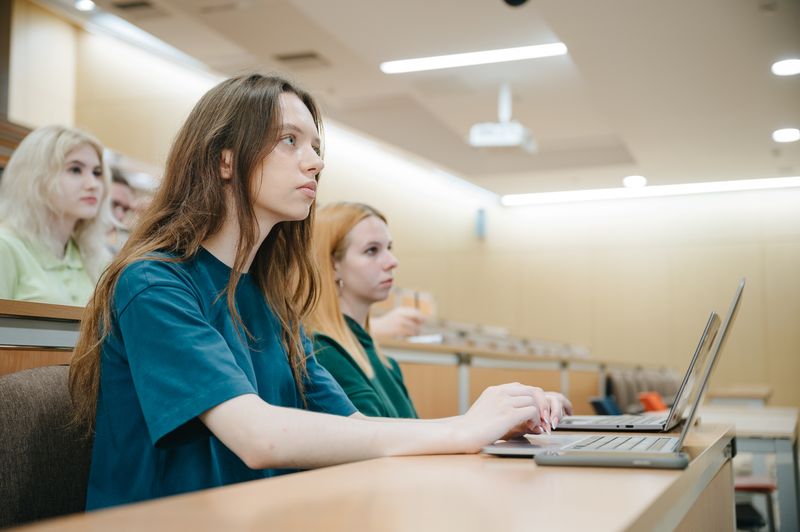‘This Is a New Chapter in My Career and I Want to Write It in a Cool Manner’

In the 2023/24 academic year, the Bachelor’s programme in Software Engineering at HSE University’s Faculty of Computer Science has a new academic supervisor. Nikolay Pavlochev has experience in successfully implementing initiatives for the development of the Moscow Institute of Physics and Technology (MIPT). At Acronis, a company working in the field of backup and data recovery protection systems, he has worked with leading technical universities in Singapore, Switzerland, Germany, Bulgaria, and the USA. In our interview, he spoke about how he came to the Faculty of Computer Science and what his programme development strategy is.

Nikolay Pavlochev
— What is your educational background?
— I am a graduate of the Department of Non-Ferrous and Precious Metals at the Moscow Institute of Steel and Alloys. I have some interest in innovation economics, intellectual property management, and psychology. If you try to characterise my educational trajectory, then the base received at one of Russia’s best scientific and technological universities helped me develop a technical mindset and systemic thinking, while various courses and advanced training programmes increased my communication and management skills.
On the whole, I am a supporter of lifelong learning, so I always have time in my schedule for one or two courses from online platforms or specialised educational institutions.
— Where did you work before HSE University?
— If you look into my employment history, you can find a lot of interesting things there. During my school years, I worked part-time at a construction site as a handyman; at the university, I worked as a marketer for a large Moscow internet provider, but the most significant workplaces for me were Phystech Union and Acronis.
The non-profit partnership Phystech Union for Support and Development of MIPT is a community of MIPT graduates and activists who are willing to spend time and resources to support the university. We have implemented dozens of different initiatives aimed at developing both MIPT itself and the area around it. Among the most significant ones, I’d like to highlight the development of the territorial megacluster programme PHYSTECH XXI, the creation of the MIPT Endowment Fund, as well as the construction of a new campus of the Phystech Lyceum named after. P. L. Kapitsa and Phystech Park.
In this job, I had to face new and interesting tasks with enviable regularity and roll up my sleeves to solve them. My colleagues and I often recall that when you hear about a large-scale initiative from a graduate, you are a little scared at first, but having overcome your fear, you begin to implement it. And—lo and behold—a systematic approach, perseverance, and willingness to take responsibility help move mountains.

Following one of these initiatives, I ended up working at Acronis in 2017. In 2010, the Department of Theoretical and Applied Computer Science was formed at MIPT, the main organisations of which were Parallels, Virtuozzo, and Acronis. In 2017, it was one of the top departments in terms of software engineering (that is, applied computer science), but in terms of computer science, there was room for growth. As a person who knows and understands MIPT well, I was asked to solve this task.
After six months of sleepless nights, studying global and Russian experience, as well as the expertise of colleagues from St Petersburg Agrarian University (St Petersburg National Research Academic University named after Z. I. Alferov, RAS) and JetBrains, a master’s programme in computer science was created.
For the next six years, I was engaged in interaction with leading technical universities in the regions where we conducted development. These are Russia, Singapore, Switzerland, Germany, Bulgaria, and the USA. It was a great experience and I am forever grateful to my colleagues at Acronis.
— How did you end up at the Faculty of Computer Science?
— I became acquainted with HSE University quite a long time ago. In 2012, one of my close friends organised a small laboratory at HSE University under the leadership of Takhir Bazarov. There he researched issues of team building and group interactions. Every Wednesday we gathered in the building on Petrovka, listened to lectures on psychology, played Mafia and Managerial Duel, and simulated negotiations. It was a very interesting period that helped me build up my negotiation and mediation skills, which have come in handy more than once.
I crossed paths with FCS in 2017. When I joined Acronis, the company was already working with the faculty. We had a student laboratory in which students conducted research for the benefit of the company. Colleagues from two teams worked with the Faculty of Computer Science. I was tasked with developing collaboration and engaging new teams.
Thus, together with Olga Maksimenkova and Irina Plisetskaya, we organised master classes, participated in the work of the Centre for Internships, Projects and Entrepreneurship at the Faculty of Computer Science, taught graduate students and hired talented people. So, at that moment, when I received an offer to join the faculty, I had no particular doubts, because this was a great university, a great team, and the students were so talented!
— What prospects do you see for the Software Engineering programme?
— In my worldview, a good educational process is based on three components: a strong connection with industry, first-class teachers, and strong applicants.
The industry is forming a demand for future specialists. It shares its vision of what knowledge and skills an ideal candidate should have, what values in terms of work and ethics they should share, and what career path they could take. Only when there is a good connection with the industry is it possible to create educational programmes that are truly in demand, instead of building ivory towers. At the same time, the concept of ‘industry’ should be interpreted quite broadly: it includes corporations, research institutes, various industry communities, and the state. That is, all those for whom and with whom our graduates will work.

Once you have become familiar with the image of an ideal candidate, you can move on to creating an educational programme. And, at this moment, the figure of the teacher appears. This is the same person who, throughout the entire training, will help students on their path from applicant to graduate to become the ideal candidate.
And finally, the last, but by no means the least important component is a strong applicant. First of all, a high level of applicants allows one to build the educational process more efficiently, be less distracted by repetition, master the programme faster, and ultimately acquire more knowledge and skills. In addition, the university is also a place where acquaintances are made and connections are formed, which will be an excellent help for graduates in their careers.
In each of these areas, Software Engineering has an excellent foundation. So, my task, as I see it, is to help the programme reach the next level. Yes, at the moment the Software Engineering programme is one of the best in Russia, as demonstrated by the high passing scores and the demand for graduates in the market. But modern education is a competitive environment—our colleagues at other universities do not sit idly by and are actively developing, so we cannot rest on our laurels.
— What are your expectations of work at the faculty?
— This is a new chapter in my career and I want to write it in a cool manner.
HSE University in general and the Faculty of Computer Science in particular are cool places; everything is literally seething with energy. This is incredibly inspiring.
As for the students, I have been actively communicating with them for the last month and have highlighted several points for myself. First of all, these students are very hungry for knowledge and skills; they are savvy not only in hard skills (the passing score clearly shows that), but also in soft skills. They do not hesitate to ask questions, argue, and defend their point of view, while they can and are ready to listen and hear if you do not just overawe them with your authority or age, but give reasonable arguments. I like it here, and I would be happy to contribute to the development of the FCS and HSE University.
See also:
HSE Faculty of Computer Science Holds 3rd Winter School in Software Engineering
For the third time, HSE University Faculty of Computer Science has held a winter school in software engineering, with over 1000 participants registering for the event. Representatives from the Faculty of Computer Science and its partner companies, including Yandex, Sber, Tinkoff, and MTS, delivered lectures at the school.
HSE Faculty of Computer Science Holds Summer School on Software Engineering
At the beginning of July, a summer school on software engineering was held at the HSE Faculty of Computer Science. This is the successor to the school on mobile applications development, which was held at the FCS from 2015 to 2022. The school’s partners for this event included 1C, Sber, the community of authors of the Indicator games, and the Samsung Innovation Campus IT School.
HSE Faculty of Computer Science Holds Second Winter School on Software Engineering
This year, 625 applications from 90 cities were submitted to participate in the second Winter School on Software Engineering at the HSE Faculty of Computer Science. The main topics were software architecture, mobile development, digital twins, artificial intelligence, cloud services development, API, technical debt, QA, software systems, Flutter, and distributed systems.
‘When I Learned to Implement My Ideas in a Program, I Understood Why It Was Worth Coming to University’
On February 15–17, the HSE University Faculty of Computer Science will hold a winter software engineering school aimed at sharing and exchanging knowledge about modern tools and methods in software development. Those interested in taking part must register by February 12. The HSE News Service spoke to students of the Faculty of Computer Science about their studies on the Bachelor’s programme in Software Engineering.
HSE Faculty of Computer Science Organises Its First Software Engineering Winter School
From February 14–18, the HSE Faculty of Computer Science organised its first international winter school dedicated to software engineering. The event was supported by JetBrains, Innopolis University, and Schaffhausen Institute of Technology.
'Programming Is an Ideal Profession and There’s No Better Time for It Than Now’
Ernest Sadykov, a graduate of the HSE Faculty of Computer Science (FCS), works as a software engineer at Facebook. In this interview, he tells Success Builder how an extrovert can be a 'techie', why companies have trouble finding IT specialists and what Facebook’s philosophy is.
Bachelor's Programme in Software Engineering Receives Prestigious International Accreditation
The high quality of HSE’s Bachelor programme has been recognised by experts on the Accreditation Board for Engineering and Technology (ABET), the headquarters of which are located in the U.S. For more than 85 years, ABET has been accrediting college and university programmes in the applied and natural sciences, computing, engineering and engineering technology. HSE’s Software Engineering programme is the only one in Russia to have received this accreditation.
'The Best Experience of My Life'
HSE is becoming more and more popular among foreign students. We talked to English speaking graduates of the English-taught Master’s programme System and Software Engineering and found out about their experience of studying in HSE, life in Moscow, and what do they do as professionals now.
Studying Software Engineering at HSE
The Master’s programme in System and Software Engineering aims to provide students an opportunity not only to acquire the knowledge and experience they need in their chosen profession, but also to help them generate a systemic view on bringing resolutions to the difficult professional challenges they are certain to face in the future. Academic Supervisor Dmitry Alexandrov talks about programme features and international students share their experience of living and studying in Moscow.
Computer Science Faculty Students Win Yandex Hackathon
Second year Software Engineering students Anton Kondrashov and Alexander Lazarenko have taken first place in the Robot Battle hackathon organized by Yandex. Participants had to write a bot for any popular messaging service, that could quickly and easily solve users’ payment problems.


